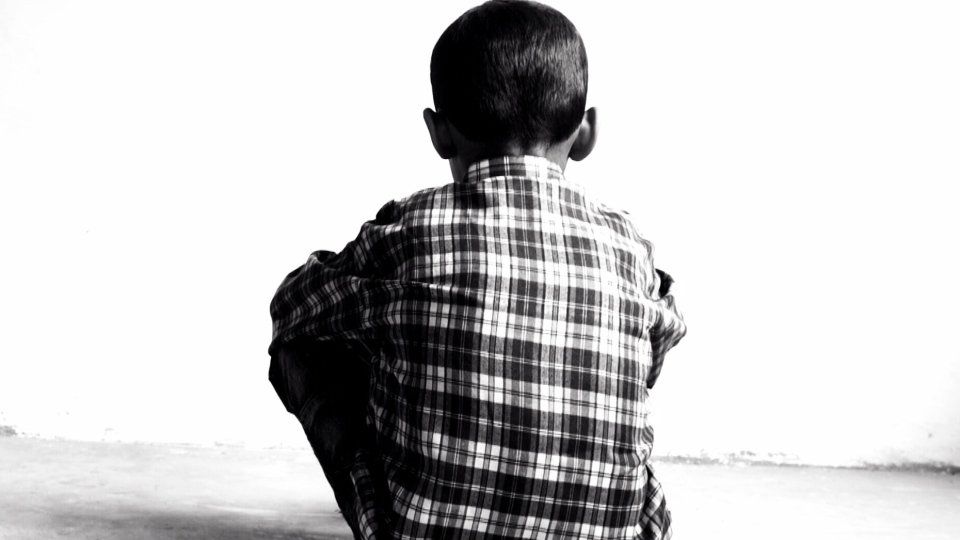Divorce and Child Depression: Are They Related
- By Satish Kartan
- •
- 14 Sep, 2017
- •

Divorce and child depression may very well go hand in hand as parental separation and divorce can be totally devastating for children and teenagers.
Major life changing events are usually the cause of depression, with divorce topping the scale for children and teen depression. Imagine how hard it is to watch the two people you love the most no longer living and guiding you together as it was. With the family unit broken, lives turned upside down you may have to watch for the onset of child depression.
Children and teens often feel stuck in the middle of their parents’ divorce and not understanding the new rules to which apply to their new lives. They have a very hard time excepting the realism of divorce and finality that comes with the termination of a marriage.
Every persons reaction and coping mechanisms are different. While many children will handle this new situation with relatively few problems or permanent negative effects while for others, the act of divorce can be very traumatic and long-lived.
The trauma created by divorce is determined by the child's experience of the event, not simply the event itself. Every child in the family could have a dramatically different emotional reaction to the changes related to divorce. Some children believe that they caused the breakdown of the marriage.
Your attitude and coping skills will shape your children's attitude. The words and actions you choose can either expose your children to unnecessary emotional pain or help them develop in positive ways.
Depression and anxiety may start at the separation by my occur for years after the divorce. It may also reoccur during special events, weekends, holidays, and birthdays or any time your child misses the complete family unit.
Here are some steps suggested by Dr. Sharmistha Barai to decrease the chance of your divorce and child depression
There is nothing more agonizing in divorce than seeing the effect it has on your child? Even though the marriage ending may be a good thing the result it has on children can still be devastating. Learning ways to help your children cope with the negative long and short term effects of separation and divorce can help to prevent depression and decrease the effects of divorce and child depression.
Dr. Sharmistha Barai is a leading Child & Adolescent psychiatrist based in Saint Louis, Missouri, using her talents and expertise to treat clients for depression, anxiety, schizophrenia, bipolar and personality disorders. She completed a MBBS degree (medical degree equivalent) at Lady Hardings Medical College, in New Delhi, India (2002). Dr. Sharmistha specializes in general psycho-geriatrics, child and adolescent psychiatry, drug and alcohol.
To read more, please visit here: https://sharmisthabarai.wordpress.com
Major life changing events are usually the cause of depression, with divorce topping the scale for children and teen depression. Imagine how hard it is to watch the two people you love the most no longer living and guiding you together as it was. With the family unit broken, lives turned upside down you may have to watch for the onset of child depression.
Children and teens often feel stuck in the middle of their parents’ divorce and not understanding the new rules to which apply to their new lives. They have a very hard time excepting the realism of divorce and finality that comes with the termination of a marriage.
Every persons reaction and coping mechanisms are different. While many children will handle this new situation with relatively few problems or permanent negative effects while for others, the act of divorce can be very traumatic and long-lived.
The trauma created by divorce is determined by the child's experience of the event, not simply the event itself. Every child in the family could have a dramatically different emotional reaction to the changes related to divorce. Some children believe that they caused the breakdown of the marriage.
Your attitude and coping skills will shape your children's attitude. The words and actions you choose can either expose your children to unnecessary emotional pain or help them develop in positive ways.
Depression and anxiety may start at the separation by my occur for years after the divorce. It may also reoccur during special events, weekends, holidays, and birthdays or any time your child misses the complete family unit.
Here are some steps suggested by Dr. Sharmistha Barai to decrease the chance of your divorce and child depression
- Honesty is the best policy:
Be honest with yourself about the potential for emotional trauma in your individual children.
- Communication:
Allow your children to communicate openly with each parent.
- Choices:
By offering your children choices, whenever possible, will increase their sense of control over their lives.
- Support:
Get the proper support for yourself and your children; It may differ for each individual.
- Normal Activities:
By keeping life as normal as you can with the same routine, same activities.
There is nothing more agonizing in divorce than seeing the effect it has on your child? Even though the marriage ending may be a good thing the result it has on children can still be devastating. Learning ways to help your children cope with the negative long and short term effects of separation and divorce can help to prevent depression and decrease the effects of divorce and child depression.
Dr. Sharmistha Barai is a leading Child & Adolescent psychiatrist based in Saint Louis, Missouri, using her talents and expertise to treat clients for depression, anxiety, schizophrenia, bipolar and personality disorders. She completed a MBBS degree (medical degree equivalent) at Lady Hardings Medical College, in New Delhi, India (2002). Dr. Sharmistha specializes in general psycho-geriatrics, child and adolescent psychiatry, drug and alcohol.
To read more, please visit here: https://sharmisthabarai.wordpress.com